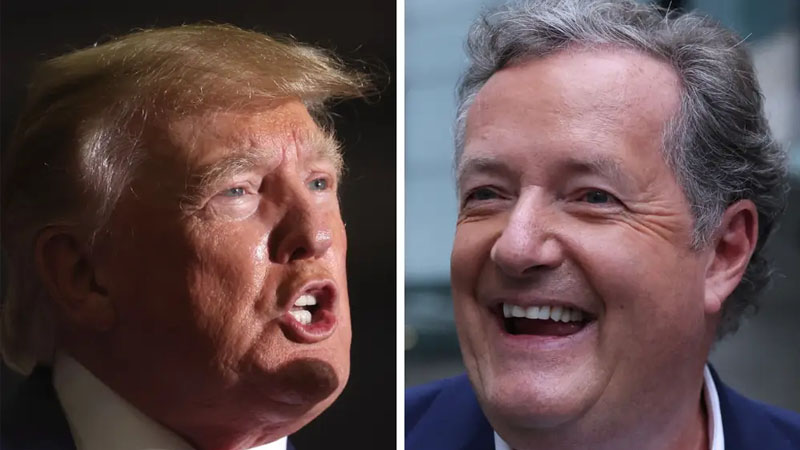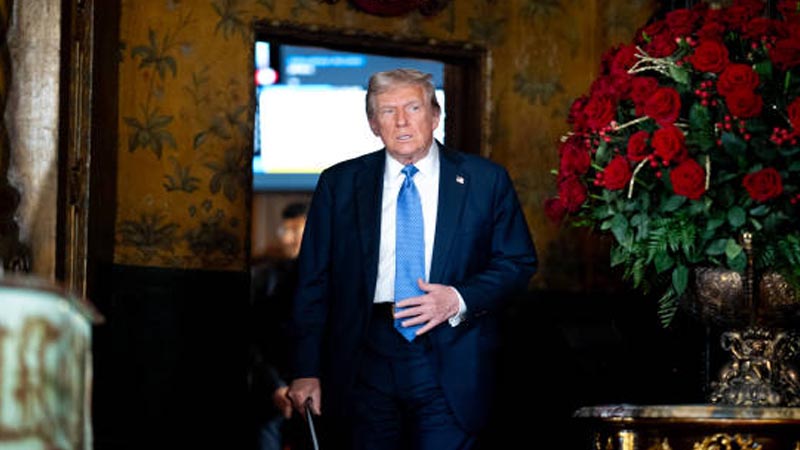Piers Morgan Criticizes Donald Trump’s Shift on Abortion During Bill Maher Show

Scott Olson/Getty Images; Hollie Adams/Getty Images
On a recent episode of “Real Time with Bill Maher,” conservative pundit Piers Morgan expressed his lack of respect for Donald Trump’s sudden shift in stance on abortion. This conversation came weeks after Morgan experienced a moment of being verbally overpowered on his own show by broadcaster Mehdi Hasan, who provided a detailed critique against the re-election of former President Trump.
During the discussion with Bill Maher, the topic of abortion came under the spotlight. Maher pointedly criticized Trump for what he described as a “hard-left turn” on an issue that remains pivotal in American politics. This shift by Trump, who has previously aligned with more conservative stances, particularly intrigued Maher and prompted a deeper exploration during the segment, reported Raw Story.
“I do respect people who completely disagree,” he said. “I can respect the other side.” The conservative host adds, “The thing I don’t respect quite so much with Trump is he does a complete U-turn on this.” “He did it in 2016 to get the evangelicals with them,” he said, “and now I think he thinks he’s got them.”
Finally, Morgan said he understands Trump’s motives for shifting.
“I don’t support what he’s doing but I do understand the political reasons he’s doing it, and it could be quite effective in neutralizing what could be a banana skin for the party,” he told Maher.
Morgan elaborated on his position regarding the controversial topic of abortion, emphasizing his tolerance for differing opinions. He highlighted his approach of maintaining respectful disagreement, even with those whose views diverge sharply from his own. This attitude reflects Morgan’s broader perspective on political discourse, where he advocates for open conversations without hostility, even on polarizing issues.
Adding a personal note to the discussion, Morgan shared an anecdote about the cultural differences he notices between the United Kingdom and the United States, particularly concerning sensitive topics like guns and abortion. He recounted advising his friends from the U.K. not to carry their preconceived notions and outspokenness about such issues into America, suggesting that the political and cultural landscape in the U.S. is uniquely complex and charged.
The dialogue between Morgan and Maher delved into the implications of Trump’s recent pivot on abortion, questioning the authenticity and political calculus behind such a reversal. Morgan’s disapproval of Trump’s change suggests skepticism about the sincerity of politicians who may shift their positions for strategic gains rather than genuine evolution of thought.
This skepticism resonates with a broader questioning of political integrity and the influence of public opinion on policy stances. The exchange on Maher’s show reflects ongoing debates in American society about the intersection of personal beliefs and political representation.
As figures like Trump and other political leaders navigate these waters, commentators like Morgan and Maher play a crucial role in unpacking these dynamics, offering insights and critiques that contribute to the public understanding of complex political maneuvers. Their conversations highlight the ongoing challenges of achieving consistent and principled leadership in a landscape that is constantly influenced by shifting public sentiments and electoral considerations.


